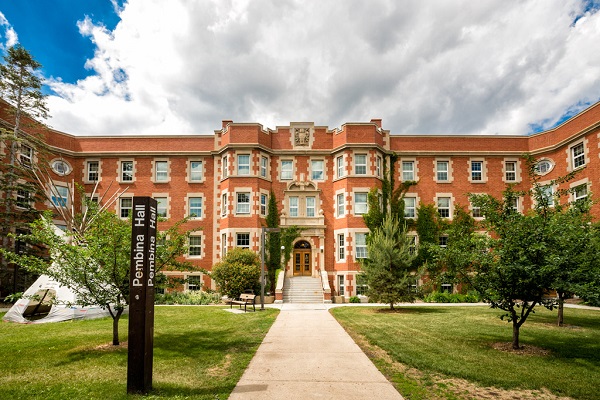University of Alberta: Indigenous-Led Consortium Secures $5M for Climate Research from New Frontiers in Research Fund
A University of Alberta-led consortium of researchers from around the world has received a 2023 New Frontiers in Research Fund grant of just over $5M. The funds will be used to support a multi-year research project to engage Indigenous and people in vulnerable conditions to develop climate mitigation strategies.
The project, entitled “Relational Accountability of Mother Earth: Revitalizing and Restoring the Land and Water,” is led by Paulina Johnson, Sîpihkokîsikowiskwêw (Blue Sky Woman), assistant professor of sociology and an adjunct professor in the Department of Civil and Environmental Engineering at the U of A.
The New Frontiers in Research Fund supports “world-leading interdisciplinary, international, high-risk/high-reward, transformative and rapid-response Canadian-led research.” The U of A-led project team, which includes consortium partners in the U.K., South Africa and Switzerland, received funds under the International stream.
The research team’s work will amplify the voices of Indigenous Peoples impacted firsthand by climate change who play a crucial role in identifying the signs and signals of change through the impacts they face regarding water and food security.
“Indigenous Peoples are the ones who are fighting against climate change because we are the first ones to experience it, yet our voices are often overlooked,” says Johnson. “By sharing oral narratives, teachings and lived experiences, we want to showcase the knowledge that Indigenous communities have regarding the water, but also of the land. And with that, goes hand in hand food.”
Each consortium partner brings a portion of the overall budget to the project, as well as a unique set of perspectives and expertise. The group also intends to pull in collaborators from New Zealand, Australia and Mexico.
Johnson explains that, while community-engaged research typically focuses on Indigenous-to-western or non-Indigenous knowledge systems, this project will emphasize Indigenous-to-Indigenous perspectives.
“This way, we inform each other, but also we show the broader public and the international research community how these knowledge systems are beneficial and important.”
Nêhiyaw from Samson Cree Nation in Maskwacis, Alberta, Johnson’s research focuses on the importance of Indigenous women’s voices and matriarchal resistance to colonial societies and institutions. It’s not surprising, therefore, that a key aspect will be exploring Indigenous women’s perspectives on climate change through water and food security. “Indigenous women are the givers of life, but they also carry a lot of the culture, the knowledge and the language,” she says. “Yet, if you look at the historical record, there’s not a lot of representation of that. So, we’re going to bring in an Indigenous feminist point of view.”
The intended outcome of the project is a series of case studies told through various modes of delivery, with emphasis on Indigenous Peoples’ traditional knowledge systems and intellectual traditions. These will be made available to both public and academic audiences around the world and will include ways to communicate about water and food quality within vulnerable communities.
By showcasing underrepresented voices and perspectives, Johnson and her collaborators hope to make a difference in the way the international research community values Indigenous ways of knowing and integrates Indigenous research methodologies. “This is very much an Indigenous-led, Indigenous-grounded project that we hope can help inform not only climate change but also how we do meaningful research.”

